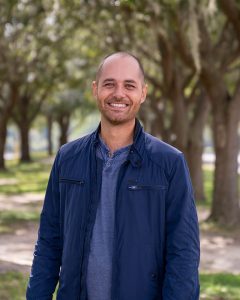I just found myself all up in my feelings tonight as I wrote the first draft of my conclusion for the doctoral dissertation. Three years worth of academic research and practical ministry as I’ve explore race, economics, and friendship as it relates to the topic of biblical neighborliness.
Here’s my first stab at my conclusion… it will change through the editing process, but I wanted to share the experience as it unfolds. There’s probably mistakes, but after three years and 12+ hours of writing today alone, I don’t hardly care at all … hahahahaha… shoot me a message if you have any feedback!
The journey of this dissertation process started in 2015 when I looked across our congregation at Center City Church and I saw a predominantly white congregation in a city that was brimming with cultural diversity. I prayed a private prayer to the Lord after a Sunday morning service and asked him to teach me how to see the beauty of the diverse kingdom of God expressed at Center City Church. I had no clue what I was praying, and even more so I could have never anticipated the beauty and the challenge of seeing this prayer answered. I have been deeply touched and changed by the rigor of this academic and theological journey, but immeasurably more by the friendships that have filled my life over the past four years. I am forever changed by the neighborliness that has been expressed to me by the pastors that have faithfully served the West Charlotte community for years and the residents of the Camp Greene neighborhood that have welcomed our church family with open arms. I am a better son of God, husband to Dara, father to Max, Mary, Jack, and Ben, and pastor for Center City Church because of the experiences that have been afforded to me on this academic and relational journey.
As a son of God, my eyes have been opened to the beauty of God’s diverse creation across racial and economic lines. I have learned how to patiently listen to the stories of others without insisting on interjecting my own personal opinions or biased outlook on life. I have learned the value of humbly placing myself at the feet of others that may not have personal riches (as measured by the dominant culture) and learning from a different level of faithfulness and trust in the Lord that is sharpened by trials and tribulation that I may never experience myself.
As a husband to Dara and father to my children, I have learned how to engage in meaningful conversation around our dinner table about culture and the dynamics that are ever-present in our society that our family (as middle-class and white) may never have addressed if I had not been afforded this opportunity to explore race, economics, and friendship at such an intimate level. I will never forget the first time that my oldest son, Max (fifteen years old at the time), and I listened to Propaganda’s album and discussed the meaning of the lyrics in-depth that explored dynamics that my son had never had to address. I saw a spark in his eyes that day that has grown into a fire for justice and compassion today.
As a pastor at Center City Church, I have witnessed beauty that is forged through conflict, forgiveness, misunderstanding, grace, and faithfully journeying together toward a beautiful expression of neighborliness that was described by Jesus as the greatest of all the commandments. We are an imperfect Christian community genuinely pursuing the perfection of Jesus on a daily basis. I will continue to choose Jesus daily and share his love with others, and I expect nothing less from this beautiful and courageous community that is embodying the message of Jesus in Charlotte, North Carolina.
As I look toward the future of where I hope this field of study will continue to press toward, I can envision two areas that I would hope that either myself or others will explore to add to the work that has been explored in this dissertation project. The first would be a practical examination of how affluent and influential leaders in the community (business and political leaders, in particular) can genuinely use their positions of power to engage in a meaningful way in the work of creating a more equitable society for all residents of Charlotte, North Carolina and cities like it across the world. There are countless men and women of God that I have met in the past four years that genuinely want to share their influence and resources with neighbors in Charlotte that have only known the devastating pattern of generational poverty. However, the unknown or unseen landmines of racial and economic complexity that have been set by the enemy have produced fear and timidity and hindered them from using their influential positions to bring true equity to high-poverty communities. I believe that someone will take on this mantle and courageously engage in making a submission that will have an incredible impact by bring reconciliation and healing between neighbors from vastly different economic realities that are all created in the same image of our beautiful God.
I have a personal desire to explore the topic of the spirit of mammon that is referenced in Matthew 6:24 and how it has infiltrated our culture –in cities as a whole and the church community. The New Living Translation does not mention this spirit specifically as mammon. It reads, “No one can serve two masters. For you will hate one and love the other; you will be devoted to one and despise the other. You cannot serve God and be enslaved to money.” However, the King James Version does refer to this spirit specifically. It states, “No man can serve two masters: for either he will hate the one, and love the other; or else he will hold to the one, and despise the other. Ye cannot serve God and mammon.”
This spirit seems to be insatiable and without satisfaction. I have met countless businessfolks that have achieved the highest levels of success as defined by the popular economic measurables of our society. However, so many feel like they do not have enough and they continue to work harder and harder to achieve some sort of satisfaction that always seems out of reach. Sadly, I also recognize this same spirit in popular church culture, as well. Church leaders insatiably chasing after astronomic levels of numeric and financial growth in churches, never satisfied with what God has given them and chasing after a sense of peace and tranquility that will only be found at the feet of Jesus. Instead of finding security in their status as a son or daughter of the king, the unattainable pursuit of satisfaction by notoriety or fame has them trapped. The spirit of mammon has ensnared entire communities and churches with the false promises of peace and security through influence, power, and financial gain. Jesus provides the antidote to the spirit of mammon in Matthew 6:33. He says, “Seek the Kingdom of God above all else, and live righteously, and he will give you everything you need.”
When Jesus was challenged by the lawyer in Mark 12:28-34 to sum up the greatest of all the commandments, Jesus concisely and powerfully replied that we should love God and neighbors. If this was the central commandment of Jesus, I believe that the aim of the body of Christ should be to love God with full passion and embody a spirit neighborliness to a world that is desperately in need of reconciliation.


